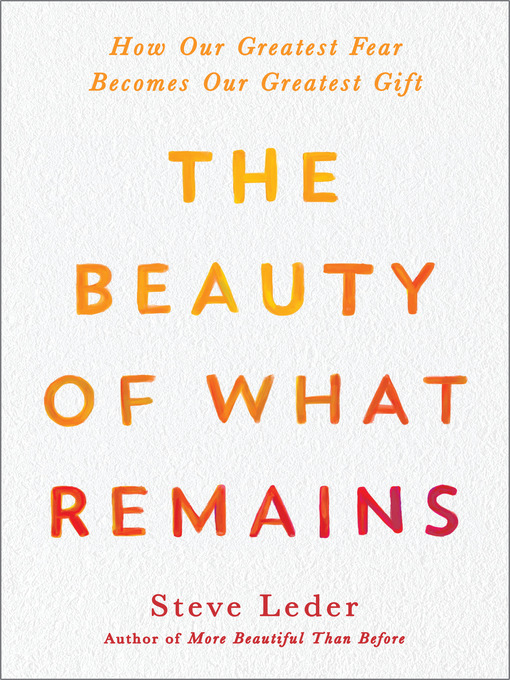
The Beauty of What Remains
How Our Greatest Fear Becomes Our Greatest Gift
کتاب های مرتبط
- اطلاعات
- نقد و بررسی
- دیدگاه کاربران
نقد و بررسی

December 14, 2020
Leder (More Beautiful than Before), senior rabbi of Wilshire Boulevard Temple in Los Angeles, delivers insightful thoughts on death and the process of dying for the spiritual and secular alike. Though Leder has spent more than 30 years visiting the sick and dying and helping to arrange funerals with grieving family members, he writes that he was unprepared for his father’s long struggle with Alzheimer’s and eventual death. Leder shares intimate details of his father’s illness and reflects on how his role as a rabbi has influenced his own relationship to death, coming to realize his “shtick” of “wisecracks” and “exaggerated gestures” needed to give way to his “authentic self” during his father’s final days. Leder writes that he often has to dish out tough love, such as his advice to a man who believed his father’s diagnosis of terminal pancreatic cancer would bring them closer: “Making peace with death is really about making peace with life —accepting the things that cannot be changed so that we do not exhaust ourselves, fool ourselves, or consider ourselves failures.” Leder’s elegant and compassionate rumination is a worthy addition to the literature on death and dying.

January 1, 2021
A rabbi reflects on death and dying. Leder, senior rabbi at the well-known Wilshire Boulevard Temple in Los Angeles, shares insights on the end of life, drawing on both pastoral and personal experiences. Having recently lost his father to Alzheimer's, the author has deepened his thought on the subject. "Sure, I had seen a lot of loss, but vicariously, one degree removed from the truth," he writes in a refreshingly candid passage. "I was an experienced rabbi well-schooled in the craft of death. But my dad was right--I was full of shit." The text is a solid mixture of advice, reflection, and catharsis. He begins with a reassurance for readers: "When someone is really, truly dying, there is no fear, only peace." With that in mind, he urges friends and family to be present for their loved one and to remind them that there is no unfinished business and that survivors will be OK. Regarding end-of-life care, Leder takes a pragmatic approach to decision-making and even gives a measured nod of approval to assisted suicide, at least where it is legal. In the case of those who die young or suddenly, the author notes that theirs is "a death like all others--perfect sleep. The deepest peace." Later, he points out that "a body is not a person. It is a vessel. There is so much more to us than our physical presence." Throughout the book, Leder weaves in the story of his father's death and often distinguishes between his job as a rabbi and his role as a son, seeking to investigate the complexities of the experience. Of course, seeing his once-strong father slowly decline, ending his days unable to speak and wheelchair-bound, affected the author deeply. The process helped him round out his understanding of death after years of helping others through the process. An insightful and intimate look at the end of life.
COPYRIGHT(2021) Kirkus Reviews, ALL RIGHTS RESERVED.

























دیدگاه کاربران